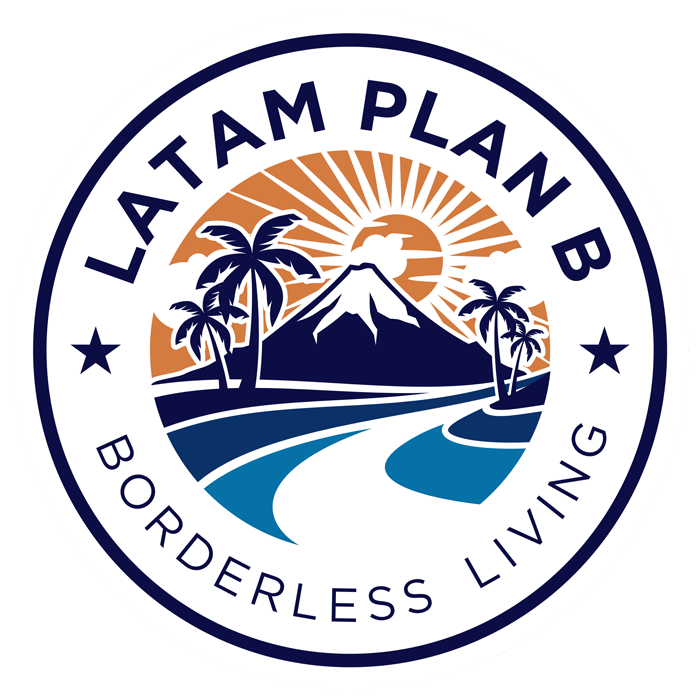In today’s increasingly globalized and digital world, more and more people are seeking the flexibility and freedom that comes with working remotely.
For those choosing to relocate to Latin America, finding a remote job with a US company can provide a great opportunity to enjoy a high quality of life with a low cost of living. With the US and Latin America being in very similar time zones, it also makes remote working between the two regions much more accessible than in other parts of the world.
Can anyone work remotely for a US company?
Everyone, including both US and non-US citizens, can work for a US company as a digital nomad while living abroad, as long as you have the necessary skills and qualifications for the job, and the legal authorization to work in the country where you’re residing.
Sometimes a US company will prefer to employ a citizen of the United States, even for remote work. However, just as often, workers are chosen on skills, experience, and time availability over country of citizenship.
Employee versus independent contractor
A business may hire you as an employee or as an independent contractor. In the context of remote work, the main difference between the two is the degree of control and direction the employer has over you as the worker.
An employee typically works for a single employer and follows their rules and procedures, while an independent contractor works independently and has more autonomy in how they complete their work. Additionally, an employer is responsible for providing certain benefits to employees, such as paid time off, health insurance, and retirement plans, while independent contractors must provide these benefits themselves.

Legal implications of remote work in Latin America
As an employee of a US company, independent contractor, or freelancer, you can either work in a Latin American country that offers a digital nomad visa, or work under a tourist visa as long as you’re not earning money from secondary employment in the country you’re visiting.
For more detailed information on visa requirements for digital nomads, check out this article: Living The Dream: How To Be A Digital Nomad In Latin America.
You’ll need to pay tax according to the regulations of your country of residence and citizenship. If you’re an employee of a US company, then it’s up to your employee to withhold tax from your salary. However, if you’re an independent contractor or freelancer, you will be required to pay tax according to your country of citizenship and/or residency.
Our team at Latam Plan B can assist you in answering any questions you have about how to navigate the tax system on your relocation to Latin America. Contact us for assistance.
Non-US citizens: Avoid US tax implications with form W-8BEN
If you’re a foreigner working for a US business, and you receive income from the US, you may be subject to a high 30% tax withholding rate. However, the US has tax treaties with many countries that aim to prevent double taxation of individuals by both the U.S. and their home country’s government.
Completing a W-8BEN Form can help you claim the treaty benefits, determine a reduced withholding rate, or claim exemption from withholding altogether. This helps ensure you’re not subject to double taxation on your income.
How to find a job & work remotely for a US company
You’ve got the skills for remote working, and your heart is set on living in Latin America. Now the question is, how do you land that remote job?
Start with online job boards
There are several job boards that specialize in remote job opportunities. These websites can be a great resource for finding remote jobs while living in Latin America. Some of the more popular ones include FlexJobs, Remote.co, and WeWorkRemotely. They feature job openings in a variety of industries and allow you to filter job listings by location, skill set, and other factors.
Network online
One of the best ways to find remote jobs is through networking. Joining professional groups on social media platforms like LinkedIn or Facebook can help you connect with potential employers and other remote workers in your field. These communities also often share job openings.
Consider working with a recruiter
Working with a recruiter can be a great way to get your foot in the door with US companies that are hiring for remote positions. Recruiters can help you identify job opportunities, polish your resume and cover letter, and provide guidance on the interview process.
Be flexible with your schedule
When working remotely from Latin America, you’ll likely need to adjust your schedule to accommodate the time difference. Be prepared to work early mornings or late evenings to align with your colleagues’ schedules. Demonstrating flexibility and a willingness to adapt to your team’s needs can help you succeed in landing a remote job.
Consider freelance work
Freelancing is a great option for digital nomads who want to have more control over their work schedule. Websites like Upwork and Fiverr offer a wide range of freelance opportunities for different skill sets. Freelancing can also be an excellent way to build your portfolio and gain more experience in your field.
Or perhaps even consider starting up your own business or agency that allows you to travel throughout Latin America freely and work on your own terms!
Final thoughts
Remote work is on the rise, and companies are increasingly open to hiring talent from all over the globe. As a digital nomad, you have the advantage of being able to offer worldly perspectives and life experiences to potential employers.
Landing a remote job in the United States while living in Latin America is definitely possible with the right approach and mindset.
By utilizing the power of networking, building a strong online presence, and demonstrating your skills and expertise to potential employers, you can increase your chances of landing your dream job while living in Latin America.
So go ahead, take the leap, and discover a life of adventure, freedom, and endless possibilities that await you as a remote worker living in Latin America.
